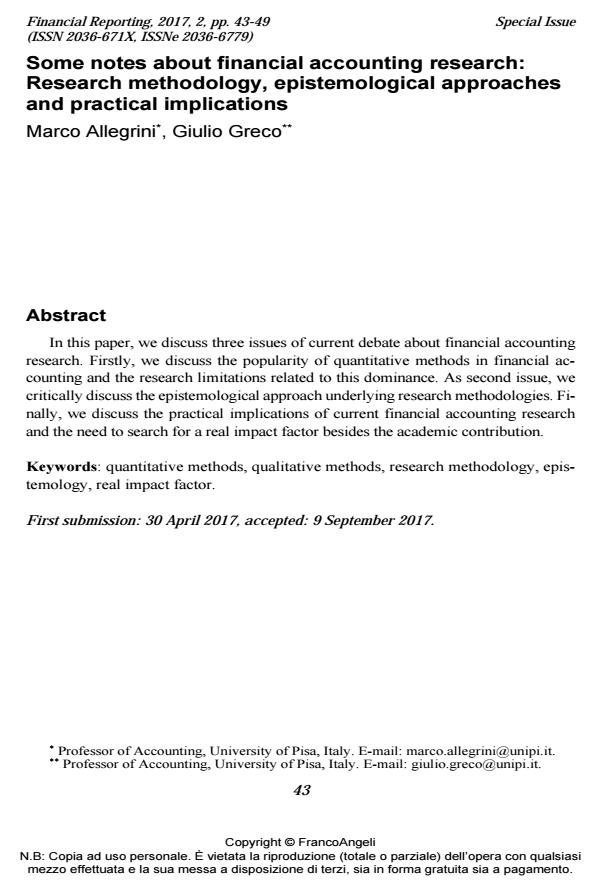Some notes about financial accounting research: Research methodology, epistemological approaches and practical implications
Journal title FINANCIAL REPORTING
Author/s Marco Allegrini, Giulio Greco
Publishing Year 2017 Issue 2017/2
Language English Pages 7 P. 43-49 File size 259 KB
DOI 10.3280/FR2017-002004
DOI is like a bar code for intellectual property: to have more infomation
click here
Below, you can see the article first page
If you want to buy this article in PDF format, you can do it, following the instructions to buy download credits

FrancoAngeli is member of Publishers International Linking Association, Inc (PILA), a not-for-profit association which run the CrossRef service enabling links to and from online scholarly content.
In this paper, we discuss three issues of current debate about financial accounting research. Firstly, we discuss the popularity of quantitative methods in financial accounting and the research limitations related to this dominance. As second issue, we critically discuss the epistemological approach underlying research methodologies. Finally, we discuss the practical implications of current financial accounting research and the need to search for a real impact factor besides the academic contribution.
Keywords: Quantitative methods, qualitative methods, research methodology, epistemology, real impact factor.
Marco Allegrini, Giulio Greco, Some notes about financial accounting research: Research methodology, epistemological approaches and practical implications in "FINANCIAL REPORTING" 2/2017, pp 43-49, DOI: 10.3280/FR2017-002004